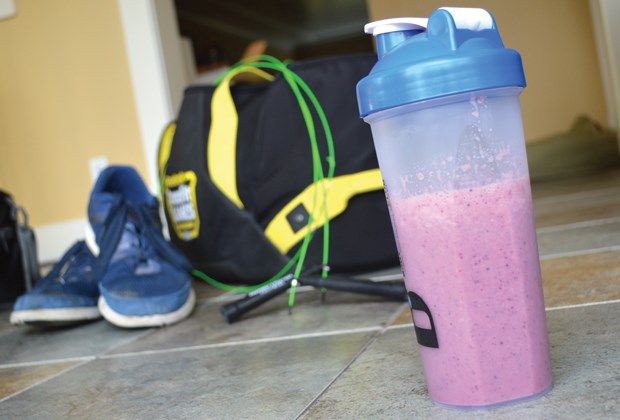Spring training is well underway for many teams and athletes on the North Shore.
Having trained hard through the winter months, they're strong and their skills are developed, but have they considered their nutrition requirements and how these will affect their game? Too often I've seen athletes run out of steam or teams fade in the last minute of games due to improper hydration or nutrition, an occurrence that can 0be avoided. When followed, a game-day nutrition plan will elevate athletes' performance and provide them with enough fuel to finish the game strong. Whether you're an endurance athlete or a sprinter, the same rules apply: the muscles require proper fuel to fire properly and get the job done. Without the right balance, athletes can't perform at their peak level.
A few simple rules apply in sport nutrition, and when implemented will leave athletes energized, stronger than their competition and able to recover quickly for their next event. The window for game-day nutrition is the 12 hours leading up to and including the event and the critical 30-minute post-event recovery phase.
For the evening meal before the competition, athletes should be consuming at least 65 per cent of their meal in carbohydrates, with a combination of complex and simple carbohydrates. Complex carbohydrates should be in the form of vegetables. Examples of simple carbohydrates include pastas, rice or potatoes. The purpose of the high carbohydrate meal is to refuel the muscles for the next day. As well, there should be a lean protein (approximately the size of the athlete's palm), such as chicken or fish, and some healthy fats.
Protein is important as it will help sustain athletes' energy levels for the next day. Fats have a significant role in that they are critical for optimal health and vitamin absorption, as well they help athletes consume enough calories to meet their daily energy needs.
Following an eight-hour sleep the body has essentially been in a fast and the energy stored in the muscles is exceptionally low. For this reason it's important to eat a healthy breakfast to replenish these stores. Ideally breakfast should be consumed three to four hours before activity as fats take this long to digest. If time allows, athletes should consume a breakfast high in carbohydrates with some protein as well. This can include eggs, potatoes, french toast, fruit, granola and greek yogurt.
If the game is an early one and does not allow enough time for proper digestion, then a large snack 1.5 to two hours pre-game is ideal. The same rules apply, except less volume and minimal fat as this will not have enough time to digest properly.
Leading up to the game, 30 minutes beforehand, athletes should only be consuming sports drinks and fruit. Only easy to digest carbs should be taken in at this point.
Sports drinks should include electrolytes, minerals and carbohydrates. Electrolytes are used to maintain cell voltage and carry electrical impulses (nerve impulse and muscle contraction).
Without electrolytes, during intense activity the cells in the body cannot communicate effectively. The carbohydrates in sports drinks provide a constant source of fuel to the muscles in an easy-to-digest manner, thereby reducing fatigue and leaving athletes energized.
Following the game or event is the 30-minute optimal window for athletes to consume a recovery drink or meal. If athletes delay eating past 30 minutes, this window closes and it's difficult to fuel properly for the rest of the day and will also have implications for the next day or game. A recovery shake or meal should include mainly carbohydrates with some protein.
I recommend athletes have a shake ready to go in their sports bag to be consumed almost immediately post-game, followed by a proper meal one to two hours later. This way, their energy stores, particularly muscle and liver glycogen, will be replenished and their muscles can repair making them game-ready for their next event.
In recent years, carbohydrates have come under much scrutiny with many believing they're the culprit relating to obesity and other health issues. For sedentary people, the requirements for carbohydrates are definitely lower; however, for those engaging in high-intensity training and sports, they should be the cornerstone of their eating plan.
Carbohydrates are the fuel that powers athletes and without them, athletes will find themselves easily fatigued and unable to reach their peak performing potential.
Sport nutrition is an often overlooked element in the training program of athletes who may be left confused and unsure of what they should be eating and when they should be eating it. By understanding these concepts, athletes can learn to manage their energy requirements so they can perform at their best, which will ultimately give them more success and enjoyment on the field.
Michelle Newton is a North Vancouver-based certified Performing Edge Coach, competitive athlete, author and classical homeopath. She is currently working with local and international athletes helping them to achieve their peak performance through the use of mental training, sport nutrition and injury recovery. momentumsport.ca



